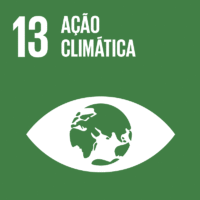Ciência_Iscte
Publicações
Descrição Detalhada da Publicação
Constructing a Sustainable City through Citizen Participation. Local responses from civil society in Curitiba, Brazil.
Web of Science®
Esta publicação não está indexada na Web of Science®
Scopus
Esta publicação não está indexada na Scopus
Google Scholar
Esta publicação não está indexada no Google Scholar
Esta publicação não está indexada no Overton
Abstract/Resumo
This dissertation investigates the actions of Civil Society groups currently active in the Metropolitan Region of Curitiba, which are attempting to create a more Sustainable City through Citizen Participation. The problem the dissertation seeks to explore is in regard to what is the current reality of the city celebrated in recent years as Brazil’s “Ecological Capital”, what have been identified as the current chief problems by various groups active today, what strategies are being employed to resolve them and to explore dynamics surrounding opportunities for normal citizens to participate in processes for ecological urban change. Recognizing the historical impact of the global population shift from the country to the city currently underway, the dissertation shares the position of many that the city today is the frontline in the battle to ensure humanities continued survival, in front of the grave threats posed by today’s global crises. The paper explores the city as a living organism, whose urban actions are analysed as cell-like entities, as possible catalysts for sustainable urban change: These urban actions by Civil Society groups can be moments, processes, eruptions, land use changes or built changes in the urban realm. The paper is divided into 2 major chapters: The Literary Review and Case Studies. The first explores the origins and recent developments in both theory and practice regarding the idea of the Sustainable City and related concepts, followed by a similar review of Citizen Participation. The Case Studies chapter is divided into 5 sections; an outline of the methodology used, urban context of Brazilian cities, local responses from Curitiba, deeper analysis of 3 groups currently active in Curitiba who all have an international component and lastly, results & data analysis. Regarding Methodology, the author uses a Participatory Action Research approach inspired by Social Ecology principles: Seeking to understand the world by trying to change it, collaboratively and following reflection, with the author learning about, with and from groups currently active within the Metropolitan Region of Curitiba. An initial list of at least 25 active groups is compiled and analysed based on the 4-D Whole Systems Design Framework, a tool developed to assist in the construction of sustainable communities which assesses groups through the 4 “key pillars of sustainability”: Social, Economic, Ecological and Worldview. From this, 3 groups are selected and assessed for deeper analysis: Cicloiguaçu, a local cyclist and urban mobility advocacy group, TETO, a local chapter of a Chilean NGO that works to eliminate poverty by building homes in the cities informal settlements (favelas) and Instituto Nhandecy, a local NGO which co run a physical space in the city and are responsible for the international “GAIA education” courses in Curitiba. Based on analysis of responses by each group to a questionnaire and the author’s ongoing participation in actions and discussions with each group, data is analysed and conclusions shared through text, tables and maps. The paper finishes with final considerations, sharing insights from the research and recommendations for the future.
Agradecimentos/Acknowledgements
Dissertation submitted to the Postgraduate Course in Environment and Development,
Pro-Rectory of Research and Post-Graduation, Federal University of Paraná. Master in Environment and Development, research line Urbanization, the City and
Urban Environment.
Palavras-chave
Sustainable Cities,Citizen Participation,Curitiba,Ecocities
Classificação Fields of Science and Technology
- Ciências da Terra e do Ambiente - Ciências Naturais
- Outras Ciências Sociais - Ciências Sociais
- Outras Humanidades - Humanidades
Contribuições para os Objetivos do Desenvolvimento Sustentável das Nações Unidas
Com o objetivo de aumentar a investigação direcionada para o cumprimento dos Objetivos do Desenvolvimento Sustentável para 2030 das Nações Unidas, é disponibilizada no Ciência_Iscte a possibilidade de associação, quando aplicável, dos artigos científicos aos Objetivos do Desenvolvimento Sustentável. Estes são os Objetivos do Desenvolvimento Sustentável identificados pelo(s) autor(es) para esta publicação. Para uma informação detalhada dos Objetivos do Desenvolvimento Sustentável, clique aqui.

 English
English



